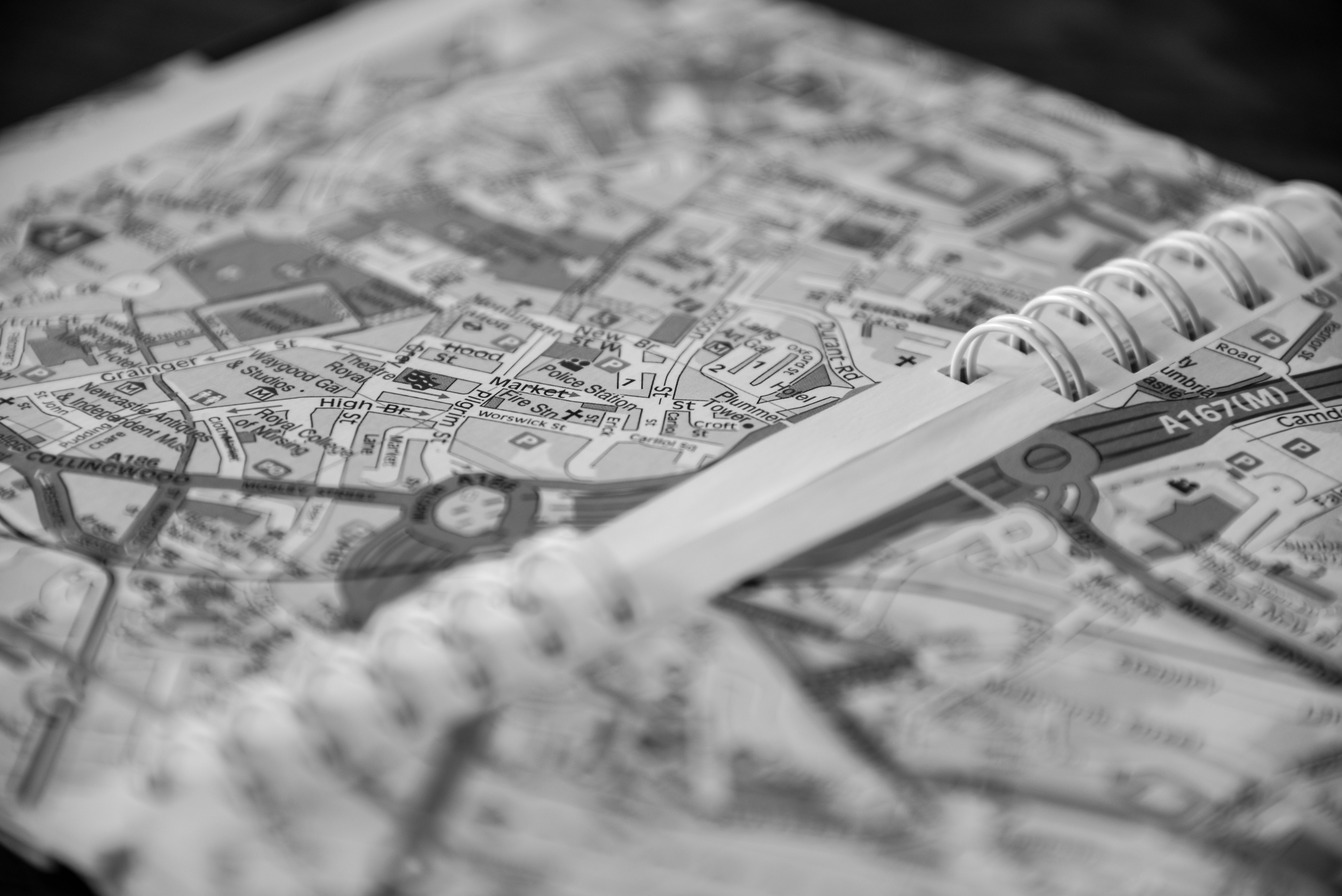While in Edinburgh on a study abroad program last month, one of my twenty-something students told me the details of her day exploring the city. She had arranged to meet friends in a café for lunch but lost access to her phone and therefore her GPS. She tracked down a paper map, found the street she was on (“just by looking at the map!”), and wound her way through the streets to her friends at the café.
Depending on the year you were born, you may be thinking – “What’s the big deal about using a paper map for navigation?” or maybe “What?! How could she get around without her phone?”
In her article Ditch the GPS: It’s Ruining Your Brain, Washington Post science writer, M.R. O’Connor explores the drawbacks of never allowing ourselves to get lost, without a map. “These gadgets are extremely powerful”, she writes, “allowing people to know their location at all times, to explore unknown places and to avoid getting lost. But they also affect perception and judgment. When people are told which way to turn, it relieves them of the need to create their own routes and remember them. They pay less attention to their surroundings.”
O’Connor’s article got me thinking about how we rely on printed scores in the same way we rely on our GPS apps, never allowing ourselves to get lost. Here’s a fun way to practice getting lost thereby gaining more confidence to express your own musical ideas.
Choose a piece off your shelf to play. Begin in the style and key written, but within a phrase or two, improvise in the style of the work. The idea is to communicate musically, but not in sequences or patterns and without repetition. This is not a challenge to play your piece from memory, but to put the communication of expressive ideas ahead of the need for note accuracy. Another way to experiment with this idea is to improvise a soundtrack while watching cartoons with the sound turned off. Allow yourself to get lost in expressing character without the road map of a score.
Reading scores 100% of our practice time can affect our perception and judgment. We pay less attention to our surroundings (including any extra muscular effort in our bodies) and we lose the ability and need to create and remember patterns, or, to put character front and center by playing without any patterns at all.
O’Connor writes, “Finding our way on our own — using perception, empirical observation and problem-solving skills — forces us to attune ourselves to the world”. Encourage your students to attune to their musical worlds by playing, at least for a few minutes of every day, without a score.

Thanks, Bret!!
LikeLike